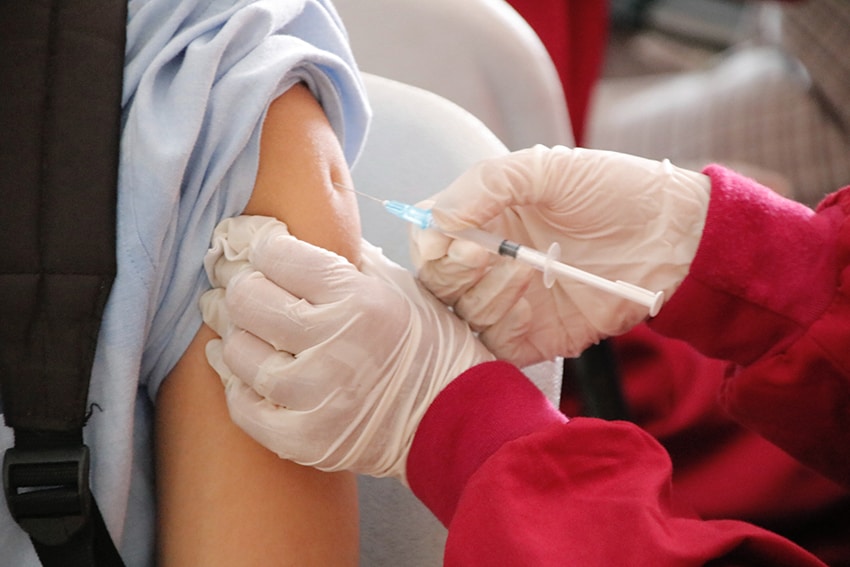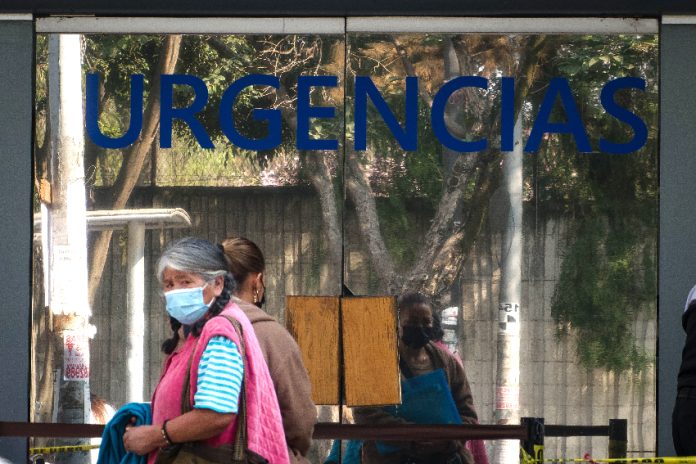Four years after the start of the global COVID-19 pandemic, Mexico is once again facing a large wave of infections.
There were almost 200,000 active cases across the country on Jan. 11, according to an update from the National Epidemiological Surveillance System (Sinave).
Derived from information provided by more than 20,000 public health care clinics, the Sinave data shows that Mexico City had the highest number of active COVID cases with 21,425 on Jan. 11, followed by Baja California Sur with 15,466.
There were more than 8,000 active cases in Colima, San Luis Potosí, Tabasco and Querétaro, and upwards of 7,000 in Nuevo León.
Quintana Roo, Sonora and Aguascalientes rounded out the top 10 states for active COVID cases. Each of those states had more than 6,000 active cases on Jan. 11.
President Andrés Manuel López Obrador acknowledged on Tuesday that COVID case numbers have recently risen, but asserted that hospitals have not been overwhelmed by people requiring treatment for the disease.

“We have enough [hospital] beds. Yes, there are a lot of respiratory diseases at the moment — the flu and other kinds of illnesses that have to do with the climate, with the season,” he said.
“Fortunately, the situation isn’t critical, all patients are being attended to and there is space in the hospitals,” López Obrador said.
The federal Health Ministry said in a statement on Monday that just 5% of general care hospital beds set aside for COVID patients were occupied on Jan. 13, while only 1% of those with ventilators were in use.
It said that there was “a notable decline” in demand for medical care in comparison with previous COVID-19 waves. The decline, the ministry added, is the result of the national COVID-19 vaccination policy.
“Thanks to national vaccination, hospital occupation and [COVID-related] deaths remain at minimal levels,” the Health Ministry said.
According to The New York Times vaccinations tracker, 78% of the Mexican population has been vaccinated against COVID-19 and 65% are fully vaccinated. Authorities have been offering additional shots to some sectors of the population for the past three months, while doses of the Pfizer vaccine recently went on sale at some Mexican pharmacies.
Meanwhile, government data shows that the occupancy rate for general care COVID beds is 100% at seven hospitals — three in Oaxaca, two in Aguascalientes and one in each of Mexico City and Baja California — while five other hospitals have rates above 80%.
The Health Ministry acknowledged that some hospitals have recorded an increase in occupancy rates, but stressed that “this situation does not represent cause for alarm.”
“It’s the consequence of the change in the number of beds allocated for the care of COVID-19 patients,” it said, adding that hospitals can reconfigure their wards based on need.
COVID-19 took a heavy toll on Mexico in the initial years of the pandemic, with more than 330,000 deaths attributed to the disease.
Mexico’s COVID-19 mortality rate is the 32nd highest in the world, with just under 261 fatalities per 100,000 people, according to 2023 data compiled by John Hopkins University.
With reports from El Universal
